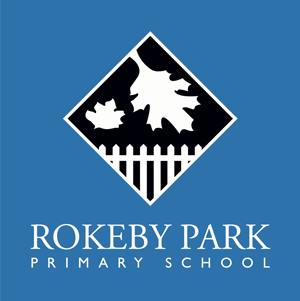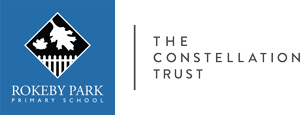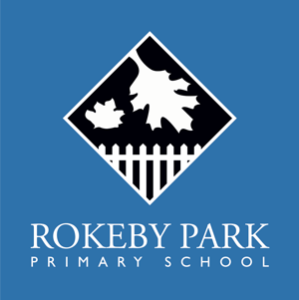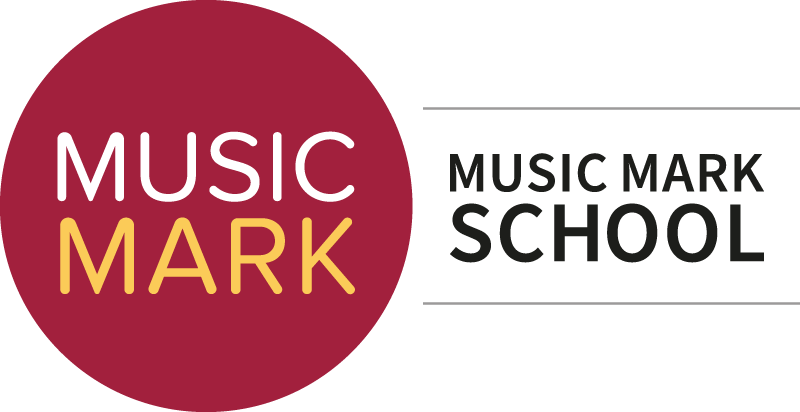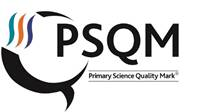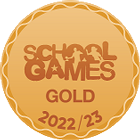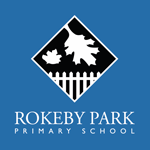
PE – curriculum information
Intent
At Rokeby Park Primary School, we believe in the importance of providing all children with a high-quality and ambitious physical education to ensure they develop competence to excel in a broad range of physical activities, find enjoyment in sport and to lead healthy, active lifestyles.
The key aims of our curriculum are:
- To develop competence to excel in a broad range of physical activities
- All children are physically active for sustained periods of time
- To engage in competitive sports and activities
- Children should lead healthy, active lives
All our children will also have the opportunity to develop knowledge, skills and confidence in:
- Leadership (communication, tactics, refereeing, explaining rules, coaching)
- Evaluation (reflecting, analysing, improving, communicating)
- Responsibility (Being fit and active, leading a healthy lifestyle)
The P.E. curriculum at Rokeby Park is progressive, builds on prior learning and enables children to develop knowledge and skills that are transferable to other areas of the curriculum and is underpinned by the school’s curriculum drivers: basic skills, diversity and spirituality, possibilities and wellbeing. Engaging in sport and P.E. helps our pupils to maintain both physical and mental fitness and develop their spiritual, moral, social and cultural development. Careful consideration is taken to ensure all pupils can access the curriculum in a whole class setting, as well as using personalised learning strategies in line with our inclusion policy.
Through the P.E. curriculum, pupils will develop their knowledge and skills through the following domains of knowledge:
- Athletics (running, jumping, throwing, catching)
- Dance and movement (movement, sequences, communicating ideas, rhythm, performance)
- Gymnastics (balance, shape, travelling, sequences, flexibility, strength, control)
- Team Games (competitive games, attacking and defending, passing, fielding, dribbling, shooting)
- Outdoor Adventurous Activities (orientation, problem solving, navigation, maps, compasses, teamwork, communication)
- Swimming (water safety, different strokes, confidence)
By the end of EYFS, children will:
Have a good understanding of the importance of physical activity, having had opportunities to be active with one another and develop their co-ordination, control and movement.
By the end of KS1, children will:
Build on learning in EYFS by developing their fundamental movement skills to become increasingly competent and confident with basic movements, including running, jumping, throwing and catching. Children will also be able to take part in competitive and cooperative physical activities.
By the end of KS2, children will:
Be able to apply a broader range of skills, linking them to different actions and sequences of movement. Children will be able to evaluate and recognise their own successes across a wide range of skills and activities, including swimming and water safety. They will take part in competitive games, develop techniques and learn how to perform dances, as well as outdoor and adventurous activities. The P.E. curriculum ensures our pupils have experiences and opportunities to help them develop an appreciation and respect for sport and physical activity.
Implementation
We use the Get Set 4 PE scheme of work planning tool to plan and deliver sessions and ensure all domains of knowledge are addressed. The PE Long Term Plan contains full details of the learning expectations of P.E. and links with the National Curriculum and Get Set 4 P.E. scheme of learning.
P.E. lessons take place for two hours every week and are taught progressively across the year groups, so that children achieve depth in their learning. A physical education knowledge and skills progression document identifies the key knowledge and skills of each unit taught.
As pupils progress through each unit of work, the following five key concepts will be explored and revisited to develop pupils’ knowledge, skills and competence in physical education:
- Competence: The selection and application of skills, tactics and compositional ideas. The readiness of body and mind to cope with physical activity.
- Movement (self): travelling, rolling balancing, sliding, jogging, running, jumping, dodging, spinning, skipping
- Movement (object control): bouncing, throwing, catching, kicking, striking
- Balance: control, stability
- Agility: changing and controlling direction and position
- Coordination: using senses together, dribbling, hand-eye co-ordination, completing movements in dance
- Speed: moving body or parts of body at controlled pace
- Tactics: strategy, plans
- Attacking and defending: 5 principles (width in attack, width in defence, depth in attack, depth in defence, delay in defence)>
- Performance: Using physical competence and knowledge to gain a better understanding of physical activity.
- Technique: Skill, ability, capability, proficiency, expertise, style
- Performance: conduct, accomplishment, achievement, completion, fulfilment, implementation, execution, presenting, improving, refining
- Spatial awareness: awareness, understanding of self and objects within a space, changes in position
- Physical literacy: performing with confidence, performing actions accurately
- Rules: regulation, directions, commands, guidelines, safety, referee, decision making>
- Creativity: Exploring and experimenting with techniques, tactics and compositional ideas to produce efficient and effective outcomes.
- Applying tactics: strategy, games, planning, sequencing, creating
- Competition: rivalry, contesting, opposition, match, game, round, heat, event
- Co-operation: collaboration, working together, combined effort, teamwork, partnership, coordination
- Communication: instructions, discussion, interaction, encouragement, clarity.>
- Healthy, active lifestyles: Understanding the positive contribution that regular, fit for purpose physical activity makes to the physical and mental health of the individual in preparation for their future lives
- Safety: Ourselves, others, dangers, risks, long term effects of exercise, keeping heathy, rescue, confidence, limitations, rules
- Health and fitness: mental, physical and social well-being, types of exercise (aerobic, circuit, yoga/Pilates)>
- Evaluation and analysis: Comparing performance with previous ones and those of others to demonstrate improvement to achieve their personal best
- Evaluation: assessment, appraisal, judgement, analysis, improving
- Determination: self-improvement, resilience, personal best
Experiences and opportunities to develop fundamental movement skills encourage children to live active lifestyles and to become happy, healthy children. Consideration is given to extending children’s learning and how it will be demonstrated within each lesson, as well as how learners will be supported in line with the school’s commitment to inclusion. All children have access to the P.E. curriculum through activities, resources and equipment being tailored appropriately for children with SEND. Children learn through similar activities, with final outcomes modified to suit all needs. In addition, subject specific vocabulary is presented upon the whole-school P.E. display board, allowing frequent reinforcement throughout the year.
To enhance our provision, the sports premium funding is used to ensure our pupils have access to high quality sports and P.E. The school regularly works with experienced and expert sports coaches so that our staff can develop their knowledge and understanding of teaching high quality and ambitious P.E. lessons. We also offer a range of extra-curricular clubs and regularly take part in sport events and competitions. We have also developed links with several local sports clubs and encourage our pupils to participate in sporting events and link up with local clubs.
Outcomes of P.E. units are regularly monitored to ensure that they reflect a good understanding of the curriculum area. Assessment opportunities are identified within each lesson to review children’s understanding and interpretation of their learning.
The Early Years Foundation Stage (EYFS) follows the ‘Development Matters in the EYFS’ guidance which aims for all children in reception to have an understanding of health and self-care and have developed their movement and handling skills by the end of the academic year.
Impact
The impact of learning is measured through children’s physical competence and ability, alongside their involvement, commitment and enjoyment to sport. Where learning is not secure and aims are not met, additional learning takes place to address this.
A range of after school clubs are available and accessible to all children in school. Physical Education standards are monitored through continuous assessment against year group objectives.
As children progress throughout the school, they develop a deep knowledge and understanding of physical activity, an appreciation for sport and their importance as part of leading a healthy, happy lifestyle and becoming responsible, respectful and resilient individuals.
Further information
‘Maths is my favourite subject because I enjoy the challenges we are set.’
‘I love English because it brings my imagination to life’
‘I’ve enjoyed all the learning I’ve done in school and I’ve made lots of brilliant friends.’
‘started here in Year 5 and I’ve enjoyed everything at Rokeby Park Primary – it’s the best.’
‘Being here for 5 years (almost my whole life) makes me feel special its almost like home’
‘I’ve really enjoyed the hard work we have been given in maths.’
‘My best memory was when it was Rokeby’s got talent and at the end the teachers all got up and danced’
‘All school trips are amazing, especially Robinwood.’
